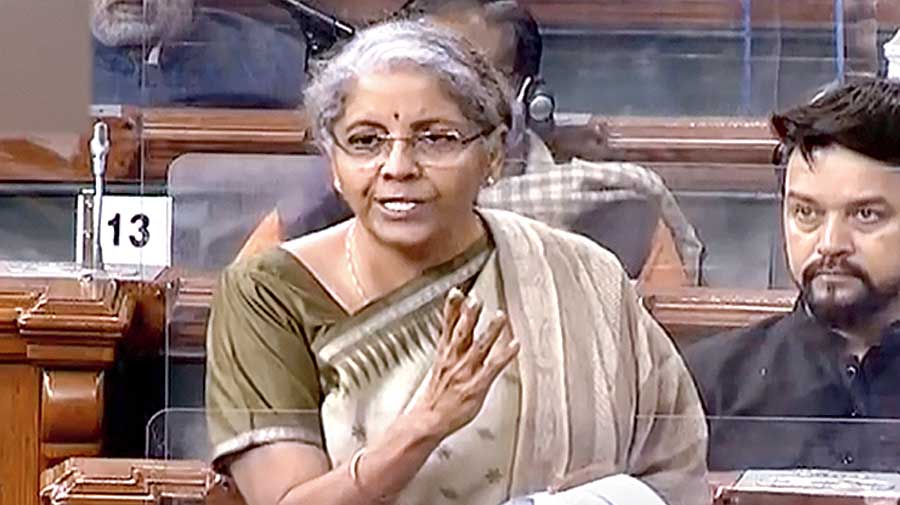The Modi government on Monday blamed external factors — increased international prices of crude and edible oils — for the surge in retail and wholesale inflation.
“The uptrend in inflation has been largely led by exogenous factors viz. increased international prices of crude oil and edible oils which have an impact on domestic inflation due to India's import dependence on these items,” finance minister Nirmala Sitharaman informed the Lok Sabha.
She said retail inflation based on the consumer price index (CPI) in October at 4.48 per cent is well within the tolerance limit of 2-6 per cent set for the RBI. The rise in wholesale inflation to 12.54 per cent in October was mostly driven by “fuel and power’’ and manufactured products.
The Centre has taken several supply side measures to curb inflationary pressures.The finance minister said the Centre planned to keep a buffer stock of 23 lakh tonnes of pulses to stabilise their prices. The government has also imposed stock limits on some pulses to prevent hoarding. Moreover, tur and urad have been brought under the free category for imports till December 31. Tariffs on edible oils have been rationalised and stock limits imposed up to March 31 next year to prevent hoarding.
Sitharaman said the central government has reduced the central excise duty on petrol & diesel prices by Rs 5 and Rs 10, respectively with effect from November 4, 2021.
“In response many state governments have also reduced value added tax on petrol and diesel” she said.
. Consequently, retail prices of petrol and diesel have sobered down,” she said.
As an additional measure to control prices, India has agreed to release 5 million barrels of crude oil from its strategic petroleum reserves, she said, adding, this release will happen in parallel and in consultation with other major global energy consumers including the US, China, Japan and Korea.
Crude rebound
Oil rebounded by more than 5 per cent on Monday to above $76 a barrel as some investors viewed Friday's slump in oil and financial markets on concern about the Omicron coronavirus variant as overdone, according to Reuters..
Top officials from the Organization of the Petroleum Exporting Countries and its allies, known as OPEC+, which meets this week, echoed that view, with the Saudi energy minister quoted as saying he was not worried about Omicron.
Omicron has created a new challenge for Opec+, which meetson December 2 to discuss whether to proceed with a scheduled oil-output hike for January. OPEC+ has postponed technical meetings this week to gain time to assess its impact.
Also on the oil market's radar this week, talks on reviving the 2015 Iran nuclear accord, that could add to global supply if a deal is reached, are resuming on Monday.










